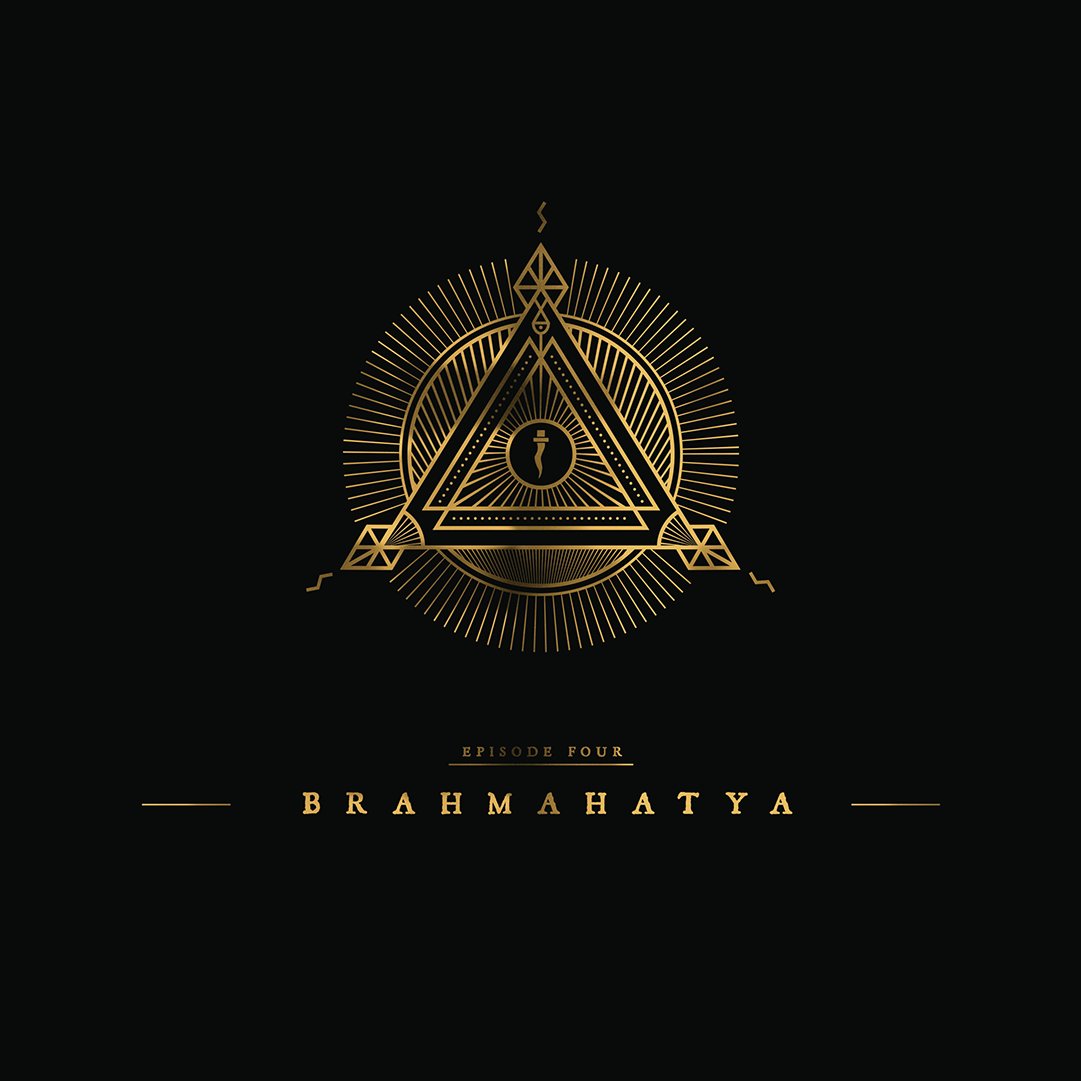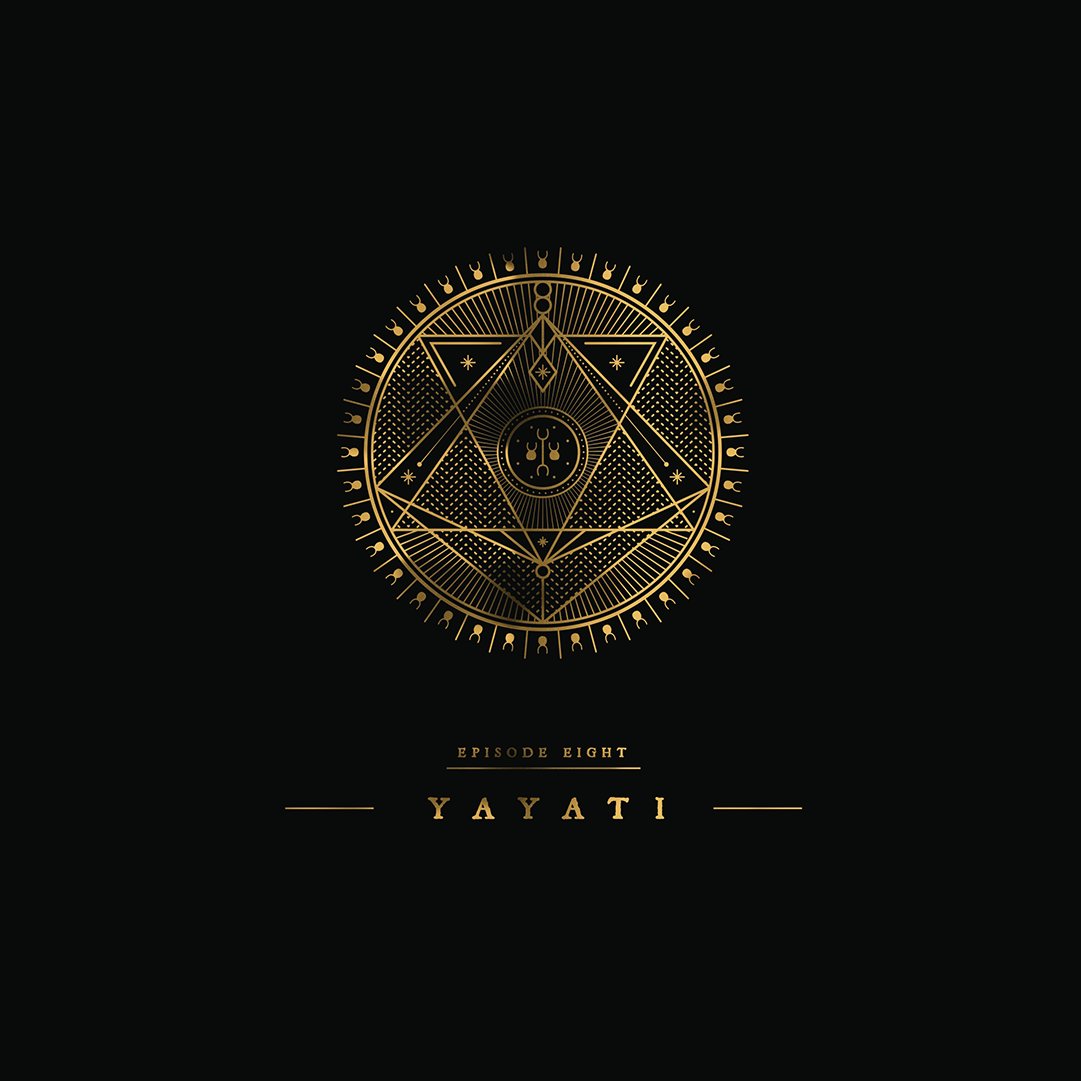If you’ve not already watched Netflix’s Sacred Games, then stop everything and watch it.
Because this is one show where not even the opening credits cannot be missed. Each episode title holds a story within itself and the symbols placed around it are more than just aesthetic elements. Something that every fan theory is focusing on!

Broadly, each emblem actually represents a contemporary take on ancient Hindu stories, and ‘are directly derived from the show’s episode titles’.

We spoke to Vijesh Rajan, Director of the Sacred Games title sequence and VFX supervisor on the upcoming Netflix series Ghoul, and basis the discussion, here’s a look at what each of the emblem signifies.
*SPOILERS AHEAD*
Episode 1: Ashwathama
Ashwathama was a legendary warrior in the Hindu epic mythology Mahabharata. Supposed to be an avatar of Lord Shiva, he was gifted with the immortality and the ability to command lower being but cursed to watch everyone he loves dies.
According to Vijesh Rajan,
In episode 01, Gaitonde calls himself Ashwathama. Not only is he alive in the beginning after most of the people he cared about died, his voice is omnipresent in the remainder of the season – making him immortal.

Read the complete description here.
Episode 2: Halahala
Released during The Samudra Manthana, Halahala was apparently a deadly poison that could destroy all creation. It was later consumed by Lord Shiva.
It could refer to the bio-hazard revealed at the end of the show, which will supposedly destroy Mumbai city.

Read the whole description here.
Episode 3: Atapi Vatapi
Atapi and Vatapi were two demon brothers who would trick travelers with temptation for food, and then own their soul.
According to Vijesh Rajan,
In our conversations with the head writer Varun Grover, we realized that this could also be a symbolic representation of the Badriya brothers. But then again, the character Bunty could also be considered the symbol of communalism, divide – that demon which goes into Gaitonde’s stomach and bursts out.

Read the complete description here.
Episode 4: Brahmahatya
In a fit of rage, Lord Indra had murdered Visvarupa, a Brahmin. However, he could not accept the guilt of killing a Brahmin, and ultimately the guilt was shared by 3 female forms – the Earth, the Woman, and the Forest, to absolve him.
This could refer to how Ganesh Gaitonde’s (Nawazuddin Siddiqui) life changes when he becomes a part of religion-driven communal killings because he is a Brahmin himself.

Read the whole description here.
Episode 5: Sarama
Sarama refers to mythological being considered as the mother of all dogs. She is usually associated with Indra and is supposed to have helped him recover divine dogs.
According to Vijesh Rajan,
As per our conversations with Varun, this episode has a lot to do with dogs. Zoya’s dog dies in the beginning and in this episode, she exacts revenge. Sartaj’s mother tells him about the story of a lost dog. Sartaj’s father spent 2-3 days looking for a Parsi’s dog. This is the story that tells Sartaj what cops are meant to be – which changes Sartaj’s mind and causes him to betray Anjali.

Read the complete description here.
Episode 6: Pretakalpa
Pretakalpa refers to the last rites read at a person’s demise, to describe the fate of a person’s soul after death.
This is the episode where Sartaj Singh gives up his anxiety over the Bengali Bura case to pursue, and ultimately kill the boy who kills Constable Kalekar, Sartaj’s police partner.

Read the complete description here.
Episode 7: Rudra
Rudra is a deity supposed to the mightiest warrior, and oft considered an impersonification of ‘terror’.
According to Vijesh Rajan,
This episode also is about Gaitonde’s rising anger. He is angry about his wife’s death – about getting thrown into jail and beaten up. The city is angry because of the Bombay bomb blasts. This is where a storm starts brewing in Gaitonde and he becomes the personification of Rudra.

Read the complete description here.
Episode 8: Yayati
Yayati was an ancestor of the Pandavas, who was cursed with premature old age for infidelity. He later swapped the curse with his son, Puru.
According to Vijesh Rajan,
This is the episode where Gaitonde meets his third father – the father who brings him death in episode 01, just like in the story of Yayati.

Read the full description here.
Clearly, from the writers to the directors, from the actors to the editors, and from the designers to the artists – everyone has put a lot of effort into making Sacred Games the series that is!
All images and Hindu mythological explanations from Plexus Motions Facebook page.

















